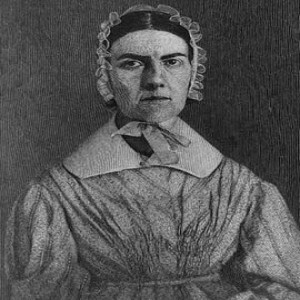
On this day in labor history, the year was 1805.
That was the day abolitionist and women’s rights advocate Angelina Grimke was born.
Her parents were slaveholders and among the wealthiest in Charleston, South Carolina.
As a young woman, she denounced slavery and together with her sister, Sarah, moved north to Philadelphia to join the Quakers.
There she became a teacher but grew frustrated with how the Quakers approached abolitionism.
She quickly gravitated towards radical abolitionists like William Lloyd Garrison and became active in the Philadelphia Female Anti-Slavery Society.
She became prominent in abolitionist circles in 1835 after Garrison published her letter condemning pro-slavery riots in Boston.
The next year, she published an open letter to Southern women demanding they condemn the institution of slavery.
Angelina and Sarah embarked on abolitionist speaking tours and the organizing of women’s anti-slavery societies.
Having grown up in the South, the Grimke sisters held an especial authority among Northern abolitionists.
They could testify to the severity and inhumanity of the slave system.
They did so in the book, American Slavery As It Is, written together with Angelina’s husband abolitionist Theodore Weld.
Controversy intensified against Angelina and her sister as their popularity grew.
Religious leaders and abolitionists alike bristled at the idea of women engaged in public speaking and political work.
Undeterred, the sisters defended their right to be on equal footing with men in the abolitionist movement.
Harriet Beecher Stowe’s sister, Catherine, a leading educator, was among those who decried women’s public activism.
Angelina responded that all humans are moral beings worthy of human rights, regardless of gender.
Her response served as an early contribution to the women’s rights movement in the 19th century.
More Episodes
 2024-11-06
2024-11-06
 2024-11-05
2024-11-05
 2024-11-04
2024-11-04
 2024-11-03
2024-11-03
 2024-11-02
2024-11-02
 2024-11-01
2024-11-01
 2024-11-01
2024-11-01
 2024-11-01
2024-11-01
 2024-11-01
2024-11-01
 2024-11-01
2024-11-01
 2024-11-01
2024-11-01
 2024-10-21
2024-10-21
 2024-10-18
2024-10-18
Create your
podcast in
minutes
- Full-featured podcast site
- Unlimited storage and bandwidth
- Comprehensive podcast stats
- Distribute to Apple Podcasts, Spotify, and more
- Make money with your podcast
It is Free
- Privacy Policy
- Cookie Policy
- Terms of Use
- Consent Preferences
- Copyright © 2015-2024 Podbean.com




